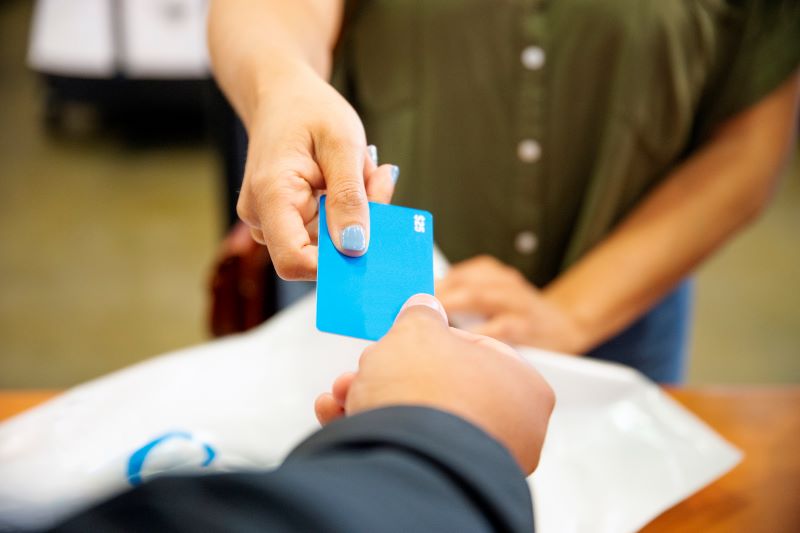You've worked hard to earn your income and support your family. Sadly, criminals are continually devising new ways to swindle unsuspecting victims out of their hard-earned money. Now more than ever, with advanced technology at their fingertips, their scams have become increasingly convincing and sophisticated. To help you protect your assets and maintain peace of mind, we've identified five types of scams that are currently circulating, along with some useful advice on how to avoid them.
1. The 'Emergency' Scam

Under this ploy, scammers reach out to you pretending to be a loved one in immediate distress, sometimes even using voice recordings they've obtained earlier to convince you. They'll tell a compelling story through calls, text messages, or social media about an unexpected emergency and will request cash urgently.
What To Look Out For
- Unexpected calls or messages: If you receive an out-of-the-blue phone call, text, or email from a family member or friend in distress asking for money urgently, be skeptical.
- Sense of urgency: Scammers often create a sense of urgency to pressure you into making quick decisions without verifying the situation.
- Requests for wire transfer: The scammer typically asks for funds to be sent via wire transfer, pre-loaded debit cards, or cryptocurrency, which can be hard to trace and recover.
Tips To Protect Yourself:
- Always verify the situation with other family members before sending any money, giving a credit card number, or sharing personal information.
- Be suspicious if the person insists on secrecy or immediate action.
2. Extended Car Warranty Scam

Scammers may call, email, or send mail impersonating your car dealership or a third party claiming to represent your dealership. They'll insist that your car warranty is about to expire and try to coerce you into purchasing a new warranty or extending the current one.
What To Look Out For
- Unsolicited calls or emails: Be wary if you receive an unsolicited call or email claiming that your car warranty is about to expire.
- Pressure tactics: Scammers may pressure you into taking immediate action, warning that you might face costly repairs in the future.
Tips To Protect Yourself:
- Contact your dealership directly using a verified phone number or email to confirm any information received.
- Be wary of unsolicited calls and emails, and don’t click email links if you’re unsure if they could be spam.
3. Charitable Donation Scam

In this scam, you may receive requests for donations from fake charities, or scammers pretending to represent genuine ones. They exploit your goodwill and pocket the money you think you're giving to a worthy cause.
What To Look Out For
- Unfamiliar organizations: If you've never heard of the charity before, or it's not registered with the CRA, it could be a scam.
- High-pressure tactics: Be wary of any "charity" that applies high-pressure tactics, insisting on immediate donations or refusing to provide detailed information about their mission, costs, and how the donation will be used.
Tips To Protect Yourself:
- Check that the charity is registered with the Canada Revenue Agency (CRA).
- Consider donating directly through the charity's official website.
4. Gift Card Scam

Scammers tamper with gift card barcodes in stores, making you pay for a card that ultimately has no value.
What To Look Out For
- Tampered packaging: Check the packaging and barcode for signs of tampering before purchasing a gift card in-store.
- High-demand cards with little inventory: Scammers often target high-demand cards, so if there's limited stock of a type of gift card, it may be a red flag.
Tips To Protect Yourself:
- Always check the packaging and barcode for signs of tampering.
- Consider purchasing e-gift cards directly from the retailer's website.
5. Home Improvement Scam

Ranked the #1 riskiest scam by the Better Business Bureau, these scams have seen a 51% increase in the past year. Fraudsters offer low-cost home repairs, often door-to-door. They either take your payment and never return, or they drastically increase the price after the initial agreement.
What To Look Out For
- Door-to-door sales: Be skeptical of contractors who offer their services door-to-door, especially if they do not have any local office or references.
- Upfront payment: Scammers often ask for upfront payment and then disappear or under-deliver on the agreed work.
- Significant price changes: If the price significantly changes after an initial agreement, it's a red flag that you might be dealing with a scammer.
Tips To Protect Yourself:
- Always check the credentials of any contractor before hiring them.
- Be wary of unsolicited offers and always get multiple estimates before starting a project.
Vigilance is key in preventing these scams. Stay alert, trust your instincts, and don't rush into any decisions, especially those involving money. If you suspect a scam, report it to your local authorities.
If you want peace of mind knowing that your wire transfers, currency, and business transactions are being handled by a real, friendly, local face, we're here to help. Contact us today for help with your questions or your transactional needs.
